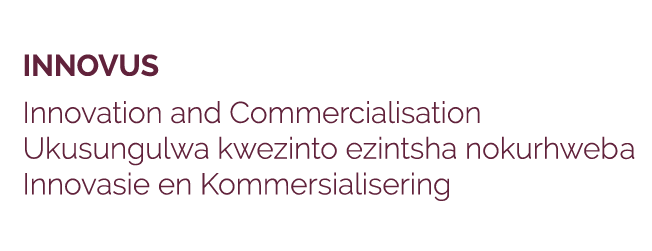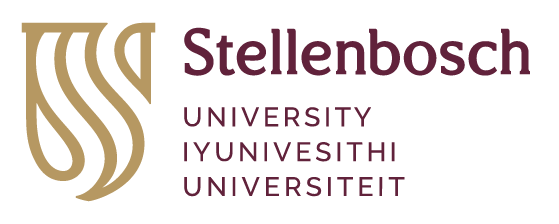Patent right holders have exclusive rights to use, manufacture, distribute and sell their inventions for a period of approximately 20 years. Therefore it is important that the creation of Intellectual Property (IP) must be attributed to its true inventor or creator on all patent applications. "Omitting the rightful IP inventor from a patent application, or including someone as an inventor when they are not, could be grounds for its revocation," says Saberi Marais, Business Developer: InnovUS.
Patent right holders can also claim any possible income associated with the subsequent commercialisation of patented IP. However, this can only be done if IP is rightly attributed and may also depend on other legal restrictions such as employment contracts. Employers can automatically be IP right holders by way of an employment contract. However, inventors retain the right to having the creation of IP attributed to them.
Patentable IP has to be a novel invention which can be used and must not be obvious to other people skilled in the applicable field prior to its invention. Inventors have to make a significant intellectual contribution to the creation of IP or to its development and demonstrate that they applied their minds to finding a solution to a specific problem set.
IP inventors (also sometimes referred to as IP creators) and IP enablers are not necessarily the same people. IP enablers could be collaborators who simply supply materials or carry out instructions for the testing of the IP. In such cases they do not necessarily qualify as IP inventors for patenting purposes. Saberi says that it is a common mistake to nominate these IP enablers as inventors.
Similarly, IP creators are not necessarily co-authors or reviewers of scientific papers or co-supervisors on projects because IP could simply be a subset of an entire paper or of the thesis output of such projects.
InnovUS can assist Stellenbosch University staff (employees as well as contract workers), students and other parties concerned with navigating the IP minefield by bringing clarity to all issues surrounding IP. Therefore InnovUS provides an IP Policy with comprehensive details on the ownership, distribution and commercial exploitation of IP. Click here for a copy of the IP Policy.
The InnovUS Guide has been widely welcomed by the University's research community, Vice Dean: Research: Faculty of Engineering, Prof Willie Perold, describing it as "a 'Development of Intellectual Property for Dummies', which will be of tremendous value to researchers."
Published in March this year, the booklet aims to provide a starting point for the many researchers and entrepreneurs who approach InnovUS with their innovative ideas. It is available in English and Afrikaans and covers a wide range of topics, varying from patents and business plans to company formation and legal and tax issues.
"What makes the booklet appealing is the short, but comprehensive articles on a wide range of topics. The information is easy to digest and the terminology used isn't too complex," says Dr Coenrad Fourie, whose research into the field of superconductors has been taken to market with the help of InnovUS.
The content of the booklet has also been praised for its relevance and comprehensive nature. "The booklet probably covers every aspect that researchers may have questions about. The layout is functional and very pleasing on the eye," says Prof Perold.
Dr Fourie concurs, adding that the authors of the articles are all specialists in their respective fields who have offered valuable insights into every aspect of the innovation process in a concrete and user-friendly manner. Contact details are also provided for all the authors.
"My only suggestion is that the information in the booklet must be updated on a regular basis to keep it relevant and correct. Information about company formation and tax issues is subject to time constraints and will have to be kept current," says Dr Fourie.
The InnovUS Guide is available online and in printed format at the InnovUS offices at 15 De Beer Street, Stellenbosch. For more information, please call 021 808 3826.
South Africa is alive with sport spirit in the wake of the 2010 Fifa Soccer World Cup tournament. The InnovUS spin-out company, Stellenbosch University Sports Performance Institute (SUSPI), has eagerly awaited the completion of Stellenbosch University’s very own football centre at Lentelus. Construction kicked off with a good start in March, and the first phase of the project was completed in the first week of July. The centre will serve as a base for Stellenbosch University’s Youth Sports Initiative.
Suspi was established four years ago and is wholly owned by Stellenbosch University. It liaises closely with Maties Sport, the Department of Sports Science, and the Department of Physiological Sciences in order to commercialise the sporting assets of Stellenbosch University.
According to Gugu Ntuli, CEO: SUSPI, the Youth Sports Initiative will create a lasting legacy for disadvantaged youths in the greater Stellenbosch area and the centre will create far-reaching benefits for the local community in future. The facility will consist of five multi-surface pitches including grass, artificial turf, sand (for beach soccer) and Futsal (five-a-side football) courts.
Gustav Venter, Marketing Coordinator: SUSPI, says the Institute offers a wide range of excellent services to local and international sport, fitness and wellness industries. “The SUSPI team endeavours to provide world-class training and a supportive environment to prepare for international events.”
One particular SUSPI team member who has extensive knowledge of such events is Ernst van Dyk, Events Manager: SUSPI. The well-known South African wheelchair-racer and handcycler secured a record-breaking ninth win at the Boston Marathon in April, breaking the ribbon after just one hour, 26 minutes and 53 seconds. This makes him the competitor with the most wins ever in any division of the race. He also recently received the silver Order of Ikhamanga from the South African government for his achievements in sport. This is the highest honour awarded to South Africans who have excelled in shaping the future of the country in sport, arts, culture, literature, music and journalism.
Apart from high-performance athletes, SUSPI’s expanding client base also comprises academies, sports teams and health-conscious individuals. According to Mr Venter, SUSPI caters for anyone striving to maximise their sporting potential or wanting to improve their health and fitness. For more information visit the SUSPI website at www.suspi.co.za, contact Mr Venter at (021) 808 9109 or send an email to gbventer@sun.ac.za.
"Today, more than ever before, intellectual property (IP) rights, including patenting, form a significant part of the balance sheets of many businesses," says Ralph van Niekerk, Patent Department: Von Seidels IP Attorneys. Therefore InnovUS goes to great lengths to provide information on IP policy, registered designs, copyright, trademarks, plant breeders' rights, licensing agreements and specifically patenting. A well-drafted patent gives the owner the right to exclude competitors from using the technology in any practical way for as long as the patent is valid.
"Deciding whether and how to develop a portfolio of patents is an important business decision," says Mr van Niekerk. "While many companies acquire patents in a haphazard manner, unlocking the full potential of patent rights requires a strategic and structured approach."
Patents can be acquired as part of offensive or defensive business strategies. Offensive patenting strategies can be followed in order to exclude competition; to license technology so others may use it in exchange for royalty payments; and to increase shareholder value and attract investments in the business. Defensive patenting strategies can decrease the risk of conducting business without patent protection; act as provisional insurance before disclosing the invention to the public; and give your business the flexibility to enter new markets and create new products. Click here for more information on strategic patenting.
One of the latest InnovUS technologies to be patented is Communi-Kate, a toy enabling suitable children's toys, such as customisable soft toys, to exhibit bonding behaviour towards their primary users. This capability is implemented on a microchip and is mainly targeted at the parents of girls between the ages of three and nine years. It also has the potential to be used as a therapeutic tool. Principal researchers Prof JA du Preez and Dr LC Schwardt have, with the help of InnovUS, filed an international patent.
Visit the InnovUS website for comprehensive information on patenting and IP.
Innovus, Stellenbosch University
|
15 De Beer Street
Stellenbosch
7600
South Africa
|
PO Box 3135
Matieland
7602
South Africa
|
|
t +27 (0) 21 808 3826
e info@innovus.co.za
e forms@sun.ac.za |

